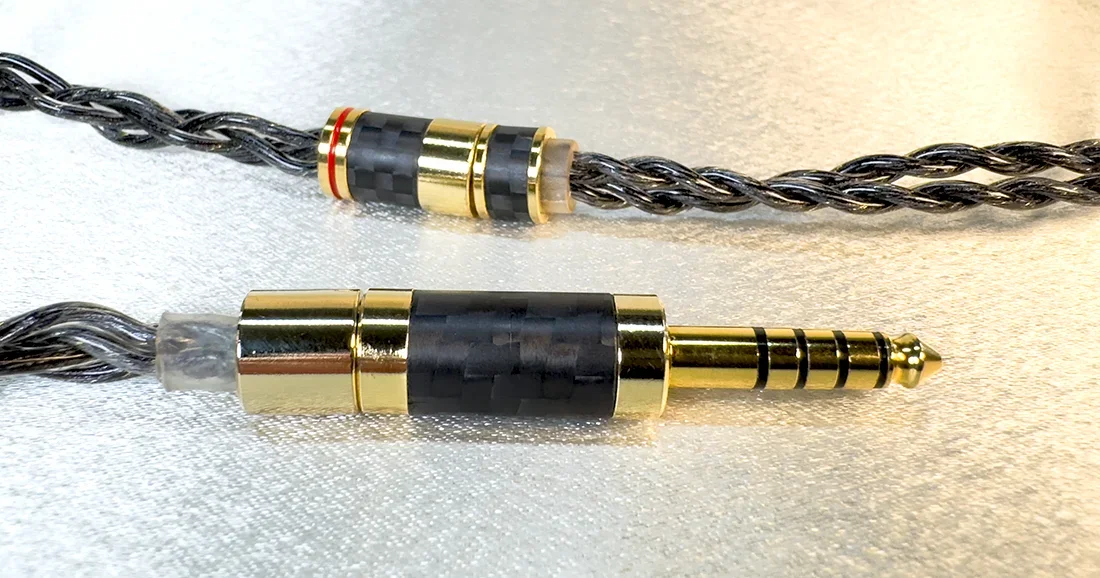By Nick Smith, 2nd December 2023
First it was BA bass… now it’s modular cable plugs – I seem to be covering audiophile taboos lately.
Not that there’s anything wrong with controversy, and swappable connectors despite gaining widespread acceptance in recent years have generated their share of heated exchanges among audiophiles.
You see some of us have felt solder joints are preferable to friction-fit IEM cable plugs & 2pin/MMCX connectors because they conduct electricity better, so theoretically they perform better. Others argue the extra swappable flexibility far outweighs any minuscule performance gains we may well struggle to hear.
As someone who’s DIY-ed cables, my stance has always been it seems counterintuitive to compromise performance with a swappable plug on an aftermarket cable who’s primary purpose is to enhance performance to begin with, and I’m happy to forgo added flexibility to achieve that end.
But… what if there was actually a sonic benefit to swappable cable plugs?
That thought immediately hit me when Penon Audio offered to send one of their new modular Obsidian cables in exchange for a review & mentioned they’d include not one, but two sets of modular plugs – Purple Copper and Rhodium-plated, each one with different tonality, and technical performance.
So is this the moment I swap to the modular-plug camp, or do I refuse to bat for the other team?
Packaging

The USD $149 OCC copper + 18k gold plated OCC copper Penon Obsidian arrived in a small cardboard box, inside of which is a sturdy carrying case, the cable itself, a shirt clip, and a set of modular plugs.
My understanding is that when ordering the Obsidian if you select the ‘3-in-1 Version’ you’ll be purchasing the modular cable I’m reviewing here, and will receive a set of 2.5mm, 3.5mm & 4.4mm copper plugs. The Rhodium-Plated plugs you can order separately.
It’s a shame there isn’t an option to add a 4.4mm Rhodium Plug on the Obsidian’s product page, because I really do feel a lot of the value of this cable lies in owning both types of plugs and being able to tweak the sound accordingly – instead you’ll need to add a separate item to your cart to purchase a Rhodium plug, along with the cable itself.
Ergonomics

At 37.5 grams, I find the modular Obsidian lies in the goldilocks zone of containing enough individual wire cores (400 total in this case) to provide an appreciable improvement to IEM performance, without being so heavy as to make me question whether the weight penalty is worth the audible gains.
That’s always been my issue with beefy 8 wire cables – they can sound terrific with boosted dynamics & improved bass impact among other benefits, but inevitably I start wondering if carrying all that extra weight on my ears is really worth it. They don’t “disappear” during long listening sessions the way smaller 4 wire cables do, and their stiffness can be a reminder I’m wearing one with each turn of my head.
The Obsidian feels like a “normal” 4 wire cable, with very pliable insulation (which feels like PVC) that helps it drape effortlessly. The modestly small & light Y-split & chin slider also benefit ergonomics, as does the lack of additional earhook insulation which has become my comfort preference.
Page 1 – Introduction, Packaging & Ergonomics
Page 2 – Modular Plug System & Sound Performance
Page 3 – IEM Impressions
Page 4 – Cable Comparisons
Page 5 – Conclusion


Missing the usb c connector…